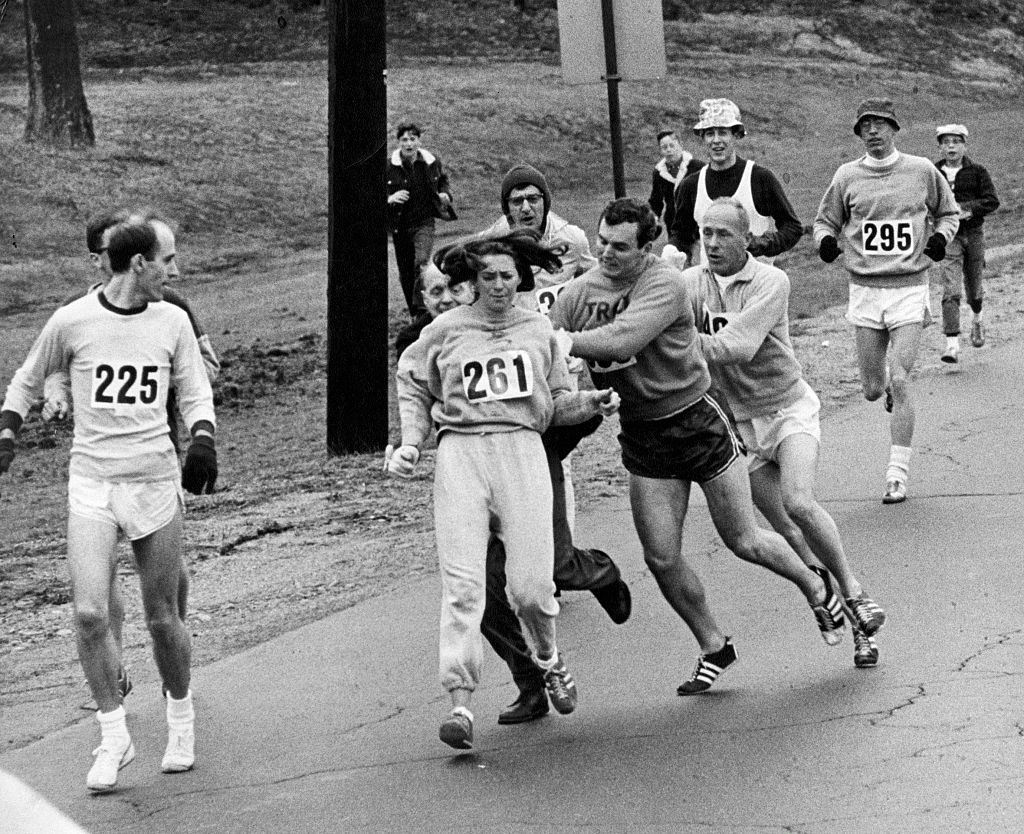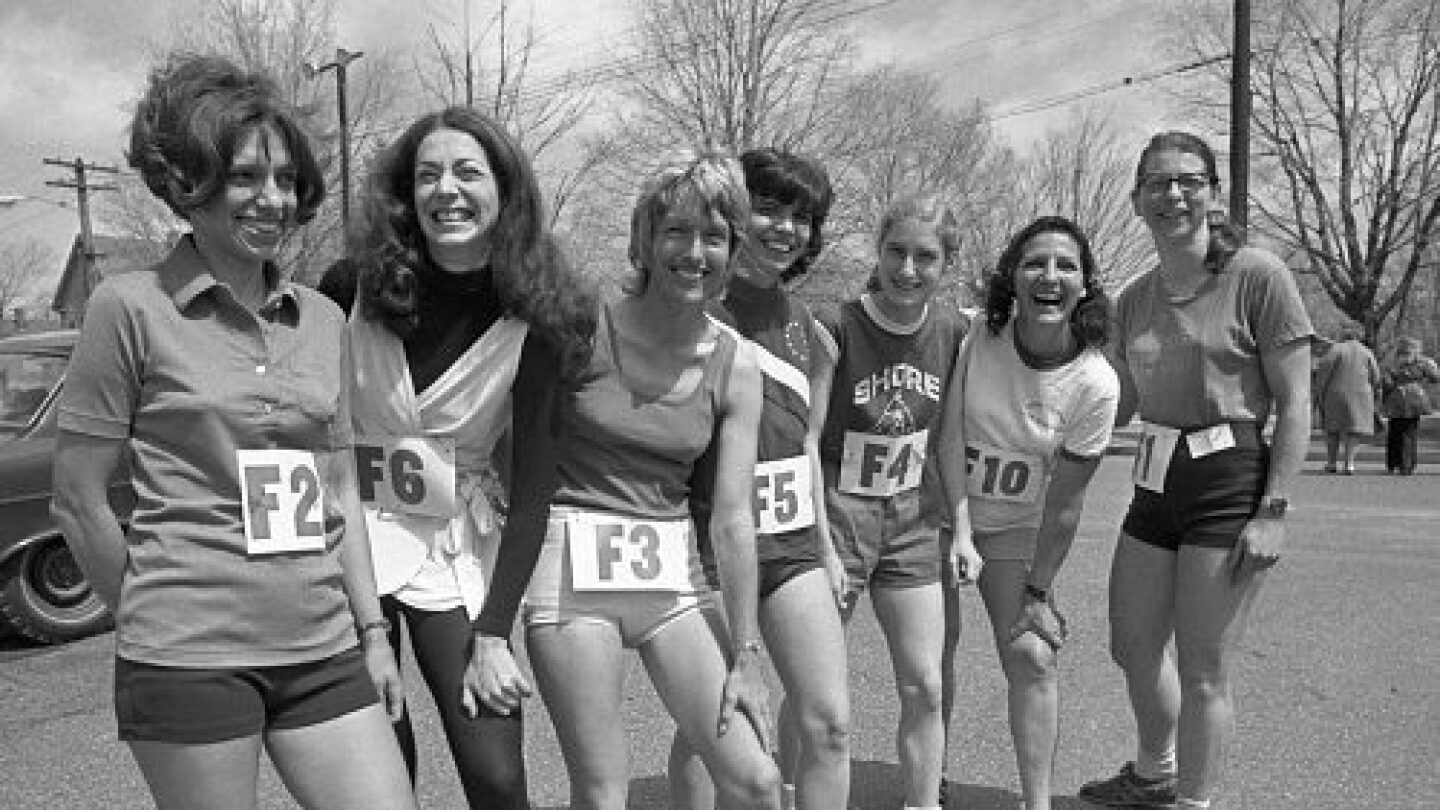The story of women’s participation in marathons is a testament to the resilience and
determination of two runners in particular: Roberta “Bobbi” Gibb and Kathrine Switzer.
Despite facing formidable barriers, these two women defied convention and made
history, laying the groundwork for the female marathoners of today.
In 1966, Bobbi Gibb attempted to register for the Boston Marathon, only to be told by
the race organizers that women were “not physiologically able” to run marathons. Gibb
did not take this as an answer, and on race day, she hid in the bushes near the starting
line and then joined the race disguised as a man. Her bold act of defiance marked the
first time a woman ran the Boston Marathon.

The following year, in 1967, another female athlete, Kathrine Switzer, registered under
the name K.V. Switzer to avoid detection of her gender. When an official attempted to
remove her from the race forcibly, fellow male runners intervened, allowing her to finish
the race, officially becoming the first woman to run the Boston Marathon.
Despite the courage displayed by Gibb and Switzer, official acceptance of women in
marathons did not come until 1972. Nevertheless, their actions ignited a spark that
would eventually lead to greater inclusivity and opportunity for female runners. Today,
over 50 years later, women make up over 45% of marathon participants in the United
States, a testament to the enduring legacy of these two amazing athletes.
Their impact extends far beyond the borders of the United States, inspiring women
across the world to pursue their dreams without hesitation. By challenging stereotypes
and pushing the boundaries of what was considered possible for women in sports, Gibb
and Switzer paved the way for future female athletes.
At Prehab, we strive to help all athletes achieve their running goals. Females,
especially, are more prone to injuries, so it is vital to focus on strength training to
prevent them from happening and allow you to reach your running goals.
